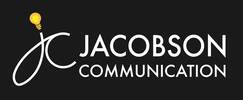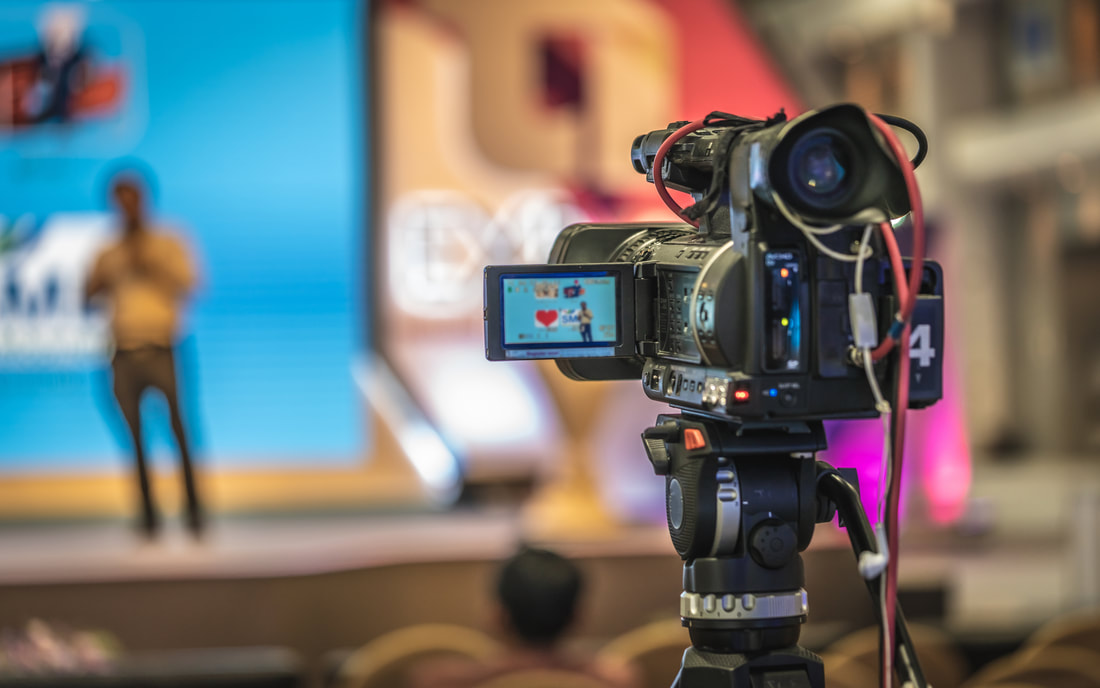|
We live in a golden age of video conferencing on national TV news shows, especially with social distancing protocols. News shows are relying on remote experts now more than ever. This is a great opportunity for your brand to speak to key issues that people care about. But not all video conferencing call-in interviews are created equal. Unless you’re a first responder calling in from a hospital or emergency location, your remote video interview should look as professional as possible. Here are some simple tips to help you look professional and be taken seriously. CES represents a great opportunity for brands, but for startups, it can also be overwhelming. Here’s how to make the most of your CES attendance.
To say that PR and the media has changed in the last decade is an understatement. We’ve gone from a 24-hr news cycle to a multi-platform, 24/7, saturated media culture with up-to-the minute headlines that change with the slightest of input.
So what’s a startup to do? Can you still make headlines? What’s changed and what’s still the same? The answers are in the new book; Snow Tires for Startups: How to Get PR Traction. Here are three of the tried and true takeaways from the book that your startup needs to know about PR today. As a new entrepreneur, you’ve been building your startup for months, and now you’re ready to start pitching to the venture capital community. You may be ready, but is your pitch deck? Are you sure you have the right elements to attract a VC?
Having your startup acquired can be a fortunate and exciting part of any entrepreneur’s life. If you’re the CEO, there are some things you need to be aware of when it comes to PR and communications. This is a turning point for you. What you do and say now will be remembered, so it's important to do the right thing.
Knowing when to start PR isn’t always easy, especially for startups. In my years of public relations and marketing experience, very few startups begin their PR efforts too early. Some startups wait to begin public relations until they’ve been selling products for over a year, and some wait until they feel like they have a story worth sharing. With so many outside voices insisting that a startup “must start now” on advertising, social media, SEO, rebranding, choosing an office space, hiring a team, winning awards, and giving cars as signing bonuses, it’s a lot. I get it.
From the Santa Cruz surf, to the top of Mt. Umunhum, to Seattle, and beyond, 2019 has been an adventure. Here's some of our behind the scenes!
Do big PR firms work for startups? Should your startup hire a big PR firm? The siren song of larger, global PR firms, with their flashy results are tempting to many, but there are good reasons startups should avoid them, at least until they have tens of thousands of PR dollars to spend monthly on a firm, at which point, they will no longer be a startup.
If you have a startup looking for a PR firm, you can do better than a big firm. Here’s why. Face it; some emails will never be read. Don't let yours be one of them. Here are seven deadly mistakes email marketers make.
1. The Subject Line Doesn't Get to the Point In Time - The first few words have to compel the reader to keep reading and open your email. If you're having a 25% off sale, lead with the words: "25% off." Don't lead with the words: "Today only, get a special, once-a-year promotion and enjoy 25% off your entire purchase." Tis’ the season for pumpkin spice, Autumn leaves, peppermint, and eggnog everything. But there’s more to running successful holiday campaigns than slapping a red and green bow on your products and expecting them to sell. Here are three communications secrets to creating compelling holiday messaging that speaks to your audience, drives more conversions, and creates life-long customers.
|
Article Categories
All
About the AuthorJennifer is a storyteller who connects big ideas with audiences. She specializes in public relations, brand development, and creative services for startups, theme parks, musicians, authors, nonprofits, and more. From audience awareness to brand development, and positive social change, Jennifer works with clients she believes in and that she believes she can help. Archives
April 2022
|
Branding Resource Center
Get Jennifer's Upcoming BookSnow Tires for Startups: How to Get PR Traction, is a practical guide for startups and growing brands who want to get the most out of their PR. Learn to think like a storyteller and weave your brand into a larger narrative that puts you in the history books. Snow Tires for Startups will help you navigate the world for PR and get the positive attention you need to move your brand forward.
|
“Is my startup ready for PR?" The answer has a lot to do with what your startup is already doing. Find out if you're ready now, if you should wait, or if you should have started PR months ago with this simple quiz.
Read more. 3 Ways Big PR Firms Slow Down StartupsDo big global PR firms work for startups? The siren song of larger, global PR firms are tempting to many, but there are good reasons many startups should avoid them. You can do better than a big firm. Here’s why.
Read more. |
|
Jacobson Communication specializes in public relations, brand development, and creative services for startups, theme parks, musicians, authors, nonprofits, and more. From audience awareness to brand development, and positive social change, you'll be surprised what better communications can do for your brand.
|
Copyright 2025 Jacobson Communication
LAND ACKNOWLEDGEMENT
Acknowledgement to the southern Lushootseed-speaking Coast Salish Indigenous Peoples whose land I live and work on.
The Duwamish People
This land also includes the traditional land and waterways of the first people of Seattle, the Duwamish People of past and present. It is with honor and gratitude to the land itself, the plants, animals, and the Duwamish Tribe that I practice my work.
The Puyallup Tribe
This land is also on and adjacent to the traditional homelands and waterways of the Puyallup Tribe. The Puyallup people have lived on and stewarded these lands since the beginning of time and continue to do so today. I recognize that this land acknowledgement is one small step toward true allyship, and I commit to uplifting the voices, experiences, and histories of the Indigenous people of this land and beyond.
To learn more about the Puyallup Tribal Language program, visit:
https://www.puyalluptriballanguage.org
The Awaswas People
I would not be the person I am today without growing up in what is now called the Bay Area. For the Awaswas-speaking Uypi Tribe, the Amah Mutsun Tribal Band, current and future generations of Indigenous Peoples across the Bay Area. I acknowledge and honor the eight tribes known as the Awaswas People, who were the original people and caretakers of much of what is now known as the South Bay Area. The Awaswas had, since the dawn of time, worked with and cultivated the area so it had a variety and abundance of animals and plants. Their ways and practices maintained balance and biodiversity that the area has not known since colonization. The Spanish displaced, enacted violence against, enslaved, and forced the Awaswas People and other Indigenous Peoples of the Bay Area into the mission system, taking the Awaswas people to missions Santa Cruz and San Juan Bautista. Some Indigenous peoples of the area were able to escape to the south and into what is now Mexico. Some of those who escaped had to deny their identity and say they were Mexican in order to survive. Much of this history is still being discovered. Today, the Amah Mutsun Tribal Band, composed of the descendants of Indigenous people taken to missions Santa Cruz and San Juan Bautista during Spanish the Spanish Colonization of the Central Coast is working hard to restore traditional stewardship practices on these lands and heal from historical trauma.
To learn more about the Amah Mutsun Land Trust, click here.
The Duwamish People
This land also includes the traditional land and waterways of the first people of Seattle, the Duwamish People of past and present. It is with honor and gratitude to the land itself, the plants, animals, and the Duwamish Tribe that I practice my work.
The Puyallup Tribe
This land is also on and adjacent to the traditional homelands and waterways of the Puyallup Tribe. The Puyallup people have lived on and stewarded these lands since the beginning of time and continue to do so today. I recognize that this land acknowledgement is one small step toward true allyship, and I commit to uplifting the voices, experiences, and histories of the Indigenous people of this land and beyond.
To learn more about the Puyallup Tribal Language program, visit:
https://www.puyalluptriballanguage.org
The Awaswas People
I would not be the person I am today without growing up in what is now called the Bay Area. For the Awaswas-speaking Uypi Tribe, the Amah Mutsun Tribal Band, current and future generations of Indigenous Peoples across the Bay Area. I acknowledge and honor the eight tribes known as the Awaswas People, who were the original people and caretakers of much of what is now known as the South Bay Area. The Awaswas had, since the dawn of time, worked with and cultivated the area so it had a variety and abundance of animals and plants. Their ways and practices maintained balance and biodiversity that the area has not known since colonization. The Spanish displaced, enacted violence against, enslaved, and forced the Awaswas People and other Indigenous Peoples of the Bay Area into the mission system, taking the Awaswas people to missions Santa Cruz and San Juan Bautista. Some Indigenous peoples of the area were able to escape to the south and into what is now Mexico. Some of those who escaped had to deny their identity and say they were Mexican in order to survive. Much of this history is still being discovered. Today, the Amah Mutsun Tribal Band, composed of the descendants of Indigenous people taken to missions Santa Cruz and San Juan Bautista during Spanish the Spanish Colonization of the Central Coast is working hard to restore traditional stewardship practices on these lands and heal from historical trauma.
To learn more about the Amah Mutsun Land Trust, click here.












 RSS Feed
RSS Feed



